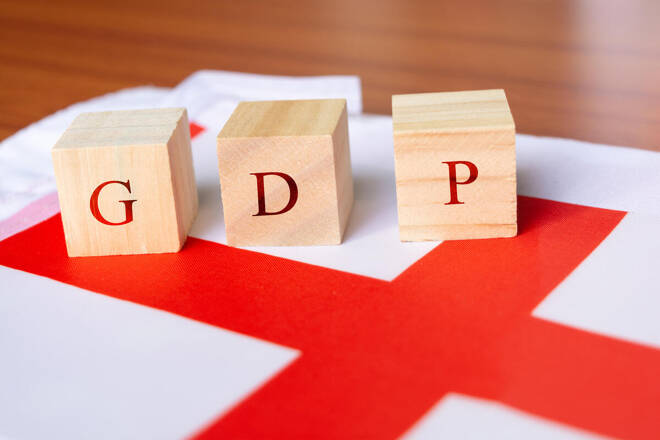Advertisement
Advertisement
UK Economy Expands by 0.2% Thanks To Services Sector Output
By:
The UK economy returned to growth in August. However, a slump in production and weak customer-facing-services output are concerns.
Highlights
- The UK economy expanded by 0.2% in August vs. a 0.6% contraction in July.
- Service sector output grew by 0.4%, supporting the overall economy.
- Bank of England Chief Economist Huw Pill is up next.
UK GDP Estimate
On Thursday, the UK’s monthly GDP estimate attracted investor interest. The UK economy expanded by 0.2% in August vs. a 0.6% contraction in July. Economists forecast the UK economy to expand by 0.2% in August. Notably, economists predicted industrial and manufacturing production to drag on growth.
According to the Office for National Statistics,
- The services sector saw output grow by 0.4%, supporting the economic recovery.
- However, consumer-facing-services recorded a 0.6% fall in output. Output declined by 0.2% in July.
- Industrial production declined by 0.7% following a 1.1% slide in July.
- Manufacturing production fell by 0.8%, a drag on headline production.
- However, industrial production grew by 1.2% in the three months to August when compared to the three months to May.
- The UK economy expanded by 0.3% over the three months to August, with services output up by a modest 0.1%.
The August report demonstrated the resilience of the UK economy. Significantly, the resilience may offer the Bank of England an opportunity to push rates higher to tackle sticky inflation.
On Monday, Bank of England Monetary Policy Committee member Catherine Mann discussed the need for more aggressive monetary policy measures.
GBP to USD Reaction to the UK GDP Estimate
Before the release of the UK GDP Estimate, the GBP/USD fell to a pre-stat low of $1.22983 before rising to a high of $1.23272.
However, in response to the report, the GBP/USD fell to a post-stat low of $1.23152 before rising to a high of $1.23249.
This morning, the GBP/USD was up 0.05% to $1.23186.
Next Up
Bank of England (BoE) Chief Economist Huw Pill is on the BoE Calendar to speak. The GBP/USD will likely respond to views on inflation, the economy, and monetary policy.
Later in the session, the US CPI Report will garner investor interest. Economists forecast the US annual inflation rate to soften from 3.7% to 3.6%. Core inflation will also move the dial. Economists expect core inflation to ease from 4.3% to 4.1%.
With inflation in the spotlight, Fed commentary also warrants consideration. FOMC member Raphael Bostic is on the economic calendar to speak on Thursday. On Tuesday, the Atlanta Fed President supported an end to rate hikes. A deviation from the dovish outlook would need consideration.
About the Author
Bob Masonauthor
With over 28 years of experience in the financial industry, Bob has worked with various global rating agencies and multinational banks. Currently he is covering currencies, commodities, alternative asset classes and global equities, focusing mostly on European and Asian markets.
Advertisement
